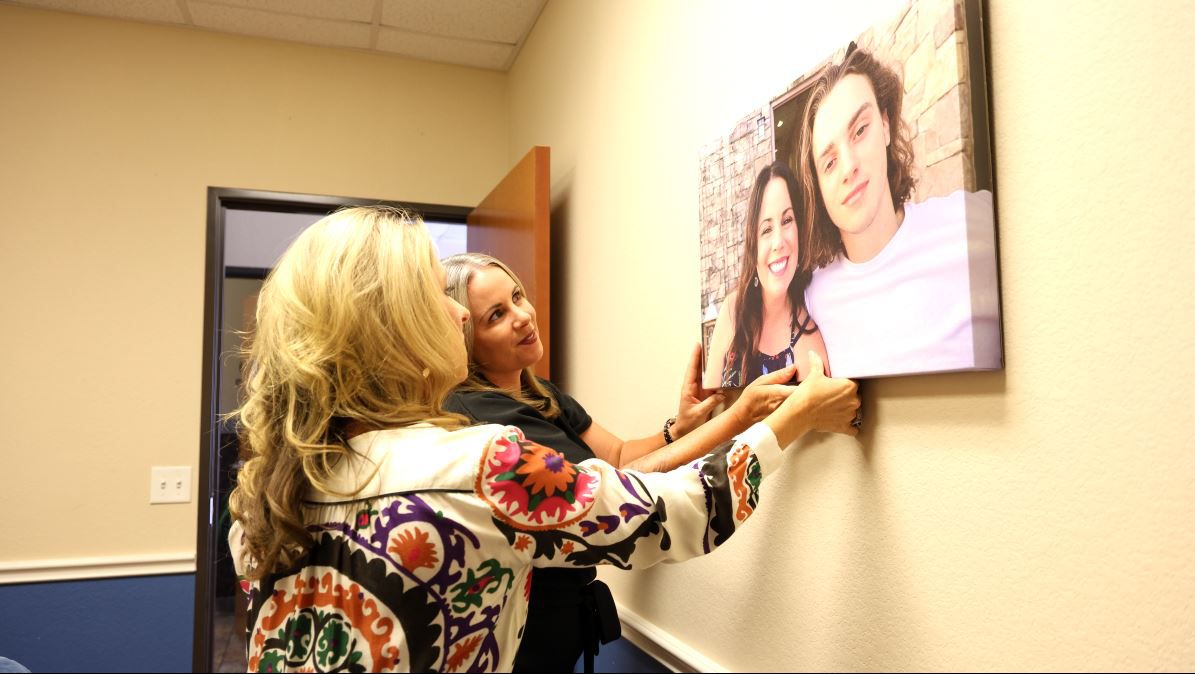AUSTIN, Texas — Texas will be recognizing Fentanyl Poisoning Awareness Month in October in an effort to bring more attention to the dangers of the lethal drug. The new designation is part of one of four fentanyl-related bills passed during the 88th regular legislative session.
That includes HB 3908, which will require public schools educate students in grade 6 through 12 on fentanyl abuse prevention and drug poisoning awareness.
That bill, named Tucker’s law in honor of Tucker Roe, was lobbied by his mother Stefanie Turner and nonprofit organization Texas Against Fentanyl (TXAF).
Turner’s mission to enhance awareness didn’t stop there. The nonprofit is now taking on the task of creating researched-based instruction to provide to Texas schools.

“Our whole goal is to get this funded by the state or independently so we can roll it out to the schools where it won’t cost anything,” TXAF board member Jennifer Stevens said.
Stevens is an education and political consultant. She’s been helping the nonprofit create the curriculum.
“If we can push out education that 7.3 million students are able to have this information as well as the parents, that’s the most effective way to get to the masses,” Turner said.
The instruction is an interdisciplinary curriculum to empower students to know the dangers of using illicit fentanyl, how to detect it and how to protect themselves. It’s a cross-curriculur approach allowing the material to be taught during the five core subjects. It includes a once-a-week current event connection for teachers.
TXAF says it will also include real stories and testimony from families affected by fentanyl poisoning.
“Our goal is to have Texas based stories,” Stevens said.
Stevens says that’s one way their curriculum will differ from others like the Drug Abuse Resistance Education initiative, or D.A.R.E.
“When you tell real life stories of kids these kids knew, that these kids went to school with, you can hear a pin drop,” Stevens said.
Research suggest the D.A.R.E. program failed because it didn’t recognize that drug use among youth is often could be due to a larger mental health issue.
“A lot of times this boils down to mental health,” Becky Stewart said to a crowd in Georgetown during a fentanyl awareness event. “How kids are dealing with and coping with their struggles, their anxiety, their depression.”
Stewart’s son Cameron died after taking a pill he bought on social media that contained a lethal dose of fentanyl. His story has been featured on billboards around Central Texas.
"Every school should have an addiction specialist, a mental health specialist, someone to help these kids battle their addiction, their anxiety,” Stevens said.

For now, TXAF is helping where they have the power to do so. The nonprofit says its middle school curriculum has been privately funded and is complete. It still needs funding to finish the high school portion of the curriculum, which Stevens says will include units on the consequences of selling fentanyl.
“We’ll collaborate with the U.S. attorneys and D.E.A. to figure out what is best,” Stevens said. “It’ll be a little more blunt.”
A pilot curriculum was successfully presented at a private school. Texas school districts have the option to choose a different curriculum or create their own but TXAF is hoping to ease any extra burden with the new instruction material.
Turner says TXAF also plans to return to the Capitol should Gov. Greg Abbott call a special session on public education.
“We are pushing for fentanyl test strips,” Turner said “There are people within our community who have lost loved ones that would have tested the pill who really did think they were getting a hydrocodone.”



